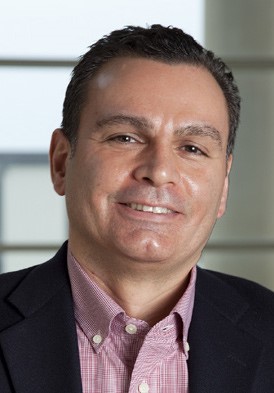Antibody and Enzyme Transport Vehicles: Engineering the Delivery of Large Molecules Across the Blood Brain Barrier, by Robert Thorne, Denali Fellow at Denali Therapeutics, Adjunct Associate Professor at the University of Minnesota, & IBBS Vice President

The Department of Chemistry Presents, via Online Zoom Presentation: by Robert Thorne, Denali Fellow at Denali Therapeutics, Adjunct Associate Professor at the University of Minnesota, & IBBS Vice President
Dr. Thorne’s work centers on CNS drug delivery and distribution. His seminar will concentrate on recent Denali studies involving novel proteins called transport vehicles (TVs), where binding to the brain endothelial cell-enriched transferrin receptor has been engineered into the Fc of immunoglobulin G (Kariolis et al. Science Translational Medicine, 2020). This platform has been fused and/or conjugated to a variety of different therapeutics, including enzymes, proteins, and oligonucleotides, as well as expressed as antibodies where the Fab arms have been targeted to a number of neuro-relevant targets. Dr. Thorne will present data on a novel application of the TV approach involving an enzyme, iduronate 2-sulfatase (IDS), that is a potential therapeutic for treating both the neuronopathic and peripheral aspects of mucopolysaccharidosis type II (Hunter syndrome), a rare lysosomal storage disorder for which treatments addressing the CNS manifestations of the disease are not currently available. Preclinical proof-of-concept data demonstrates this particular enzyme transport vehicle fusion protein (ETV:IDS) facilitates increased exposure and correction of glycosaminoglycan accumulation and secondary lysosomal markers in the brains and CSF of IDS KO mice (Ullman et al. Science Translational Medicine, 2020). More recently, clinical evaluation of this enzyme fusion protein (DNL310) has been under evaluation in Hunter syndrome patients. Dr. Thorne will provide an update on human biomarker proof-of-concept from this ongoing Phase 1/2 study of DNL310 (ClinicalTrials.gov Identifier: NCT04251026) that support our decision to expand and advance clinical studies with DNL310 as a potential treatment for both body and brain in patients with Hunter syndrome. The results with DNL310 provide strong support for the potential application of the TV technology to deliver enzymes and other therapeutic modalities to the CNS.
Bio
Dr. Thorne joined Denali Therapeutics as a Denali Fellow in September 2018 after over 10 years on the faculty at New York University School of Medicine and the University of Wisconsin-Madison. The main focus of Dr. Thorne’s research as a laboratory head has been the study of CNS barrier sites and diffusive and convective transport within the extracellular and perivascular spaces of the central nervous system – his group’s work has aimed to leverage knowledge of physiology, CNS structure, and the blood-brain and blood-cerebrospinal fluid barriers with a variety of methods in order to identify how best to deliver antibodies, oligonucleotides, and gene therapy vectors to the brain following intraparenchymal, intrathecal, or intranasal administration. Now at Denali, his focus has broadened to encompass all potential strategies for large molecule delivery to the brain, including brain endothelial cell receptor-targeted approaches for crossing the blood-brain barrier after systemic administration. He has taught systems neuroscience, drug delivery, pharmacokinetics, research ethics, and science communication at the undergraduate, graduate and professional student level at the University of Washington, New York University School of Medicine, University of Wisconsin-Madison, University of Minnesota and Stanford University. Dr. Thorne previously chaired the 2016 ‘Barriers of the CNS’ Gordon Research Conference and co-chaired the 2019 AAPS-IBBS Workshop on ‘Novel Approaches Targeting Brain Barriers for Effective Delivery of Therapeutics.’ He was elected in 2017 to serve as the Vice President (President-elect) of the International Brain Barriers Society, a global organization responsible for leadership and directing worldwide initiatives related to the CNS barriers and drug delivery fields (https://www.ibbsoc.org/).
This will be an Online Zoom Seminar.

